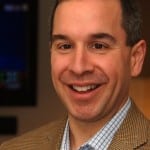
Bloomberg View columnist Megan McArdle has been on the road in recent weeks, promoting her new book “The Up Side of Down: Why Failing Well Is the Key to Success” (Viking) It’s shedding new light on one of the most fundamental elements of personal and professional growth: learning from our mistakes.
McArdle argues that the U.S. is unique in its willingness to celebrate failure and then extend second chances.
Yet throughout my career I’ve found the PR industry to run counter to this value, which is not surprising given the nature of our profession.
Just ask a room of PR pros how business is faring—regardless of industry or economic conditions—and inevitably nine out of ten will say everything’s great. It’s how we’re programmed.
Yet if we’re to grow the profession and our fellow professionals, especially those just coming into the industry so eager to learn, it’s time to rewrite that code. So let’s get started.
GROW AT ALL COSTS
Peter Giles, whose eponymous firm just north of New York City has served some of the music industry’s top brands for three decades, learned the hard way about getting too big too fast.
“At one point we were growing faster than my ability to ensure quality control,” he said. “It’s mission-critical that each new client feels as if he is your only client, working off of an unwavering checklist of customer service gospel imperatives.”
Overclocked growth can likewise cause fractures in organizational culture and performance.
During the tech boom of the early 1990s, I watched as my Boston-area agency went from 50 employees to more than 120 in a period of months, and subsequently saw a loss of camaraderie, engagement and productivity. The agency’s “magic sauce” had, in effect, been diluted.
Having served as a member of the corporation’s senior staff for a few years during some time of tumult, I’d become adept at helping one CEO find the door while simultaneously ushering another into the room.
So when a newly installed executive found himself facing a pile of decisions relating to industry topics of which he knew little, I was quick to offer my opinion and guidance.
Reviewing one particular project the CEO chose to defund it with little discussion. I pressed for a reversal, but too vigorously; my personal attachment to the program had clouded my sense of role.
Thankfully, a colleague and friend—our senior VP of HR—pulled me from the fray, and put things in perspective: “If you advise the driver to turn right and he instead goes left against the stream of traffic, you can either jump out the window or hang on,” he said. “You have the map, but he has the wheel.”
BEYOND SKIN DEEP
Working with one of the world’s best-known consumer brands, I’d been teaming up with our German counterparts on an upcoming trade show.
It sent along an array of photos for approval: blond-haired, fair-skinned twenty-somethings grinning as they interacted with the gizmo we were about to launch.
But then a peer from our corporate team jumped in, demanding that we include more people of color.
Despite the cost and delay, I relented, much to the frustration of my colleagues in Stuttgart.
It was a seeming win, but, in retrospect, both my colleague and I were wrong.
In my haste to keep the program humming, I didn’t account for the diversity factor. We shortchanged ourselves with such a narrow portrayal of our audience, when in fact the product would have a pretty extensive base of customers.
At the same time, my friend in corporate communications was too focused on race as a determinate of diversity.
Whether we’re talking diversity or other challenges facing our profession, effective PR leaders go beyond what’s skin deep, finding the core of the opportunity, the issue and the challenge.
Growing up, my neighbor was a nurse who would bring home the occasional syringe to help us avoid a drive to the doctor’s office.
Just before she placed the needle into my arm, she always said, “This will sting a little, but you’ll be better for it down the road.” Failure can be our vaccine, but only if we’re brave enough to give—and receive—the shot.
CONTACT:
Mike McDougall is president of McDougall Communications. He can be reached at [email protected]. Follow him on Twitter, @McDougallPR.
This article originally appeared in the March 17, 2014 issue of PR News. Read more subscriber-only content by becoming a PR News subscriber today.
